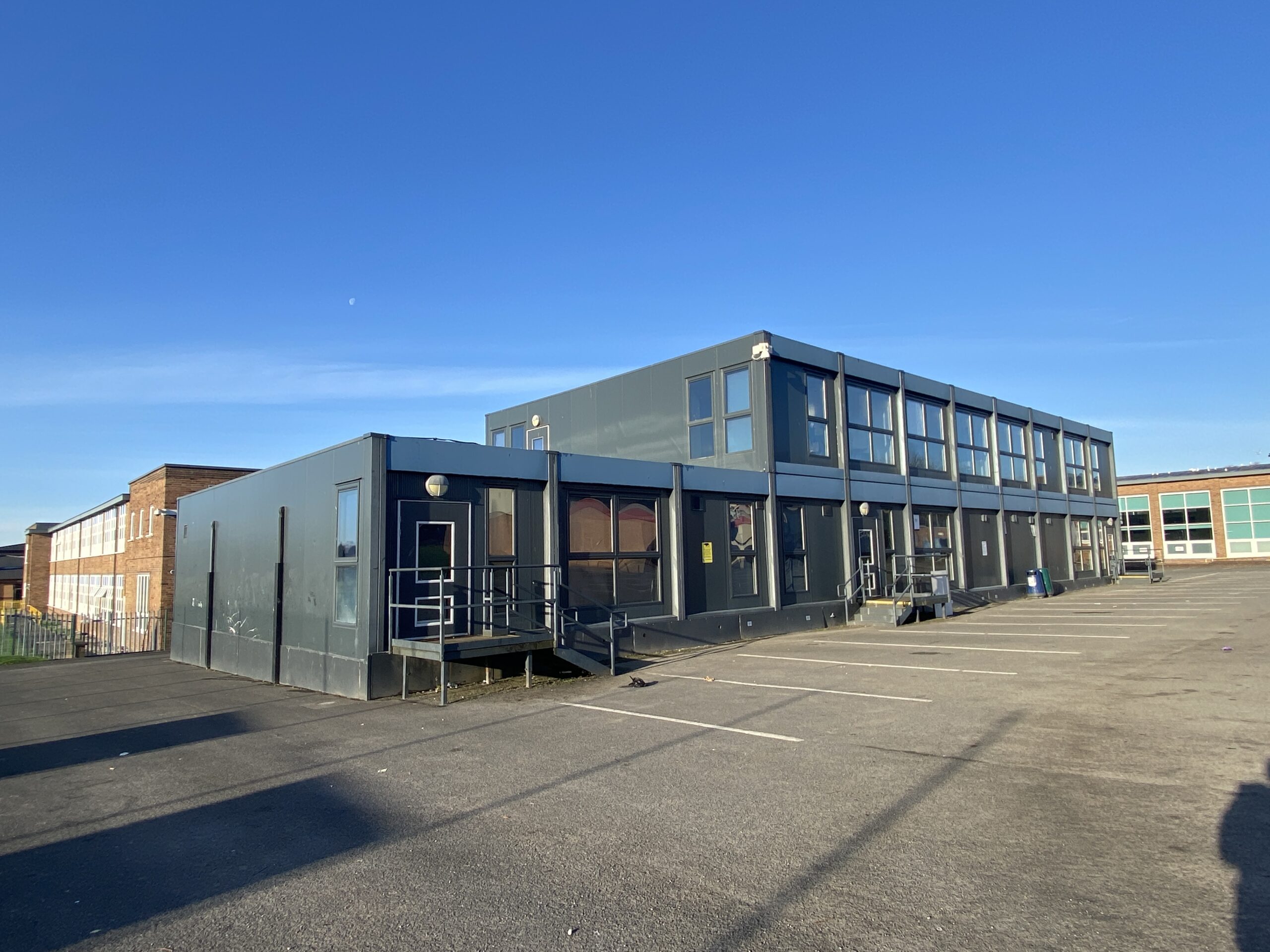 Add My Company
Add My Company

The government has made 250 temporary classrooms available for use in England’s schools after many were forced to find alternative buildings due to the RAAC (reinforced autoclaved aerated concrete) crisis. This has led to a surge in demand for modular and portable buildings that can be installed in a matter of days, The Guardian reports.
Modular buildings are easy to customise for a range of purposes, and are suitable not just for classrooms, but also hygiene facilities, offices, storerooms, canteens and staff rooms. They can be stacked on top of each other to provide multi-storey buildings, or linked side by side.
Prefab buildings once had a reputation as being a last resort, and were considered cold, damp, and rather unsightly. However, manufacturing methods and materials have come a long way in the past decade, and modern prefabs are attractive light and airy spaces that are easy to heat and energy efficient in winter.
Many schools and colleges already use modular or portable buildings on their estate on a permanent basis to provide extra teaching space that has the flexibility to be moved to different locations if and when required. They are a cost-effective alternative to traditional buildings at a time when many schools are facing cuts to their budget.
Meanwhile, the latest figures reveal that the number of schools in England affected by the crumbling concrete crisis stands at 174, according to BBC News. The list will be updated every two weeks, so it is likely that this number will increase in the future.
It is suspected that thousands of schools in the UK contain RAAC, which is a type of lightweight concrete that was invented in Sweden in the 1920s. At the time, it was welcomed and widely used in local authority buildings from the 1950s to the 1990s because it was cheap and easy to manufacture.
Concerns were raised about the safety of RAAC back in the late 1990s, and it was given a revised lifespan of 30 years. RAAC is of particular concern when it is used in roof panelling, because engineers have warned of the risk of sudden collapse. The current crisis was sparked by a collapsed ceiling incident at a school just one week before the start of term.
At least one school has been forced to close completely and teach pupils via remote learning, while a further 23 are operating with a mixture of remote and face to face learning. Dozens more have had to seek alternative sites for teaching or other needs such as office space.
Despite the fact that officials have been informed of the potential dangers of RAAC for at least two decades, persistent cuts to schools budgets mean that in many cases, repairs or alterations have not been carried out.
For more information on 250 Temporary Classrooms Are Ordered In Wake Of RAAC Crisis talk to Cabinlocator Ltd

